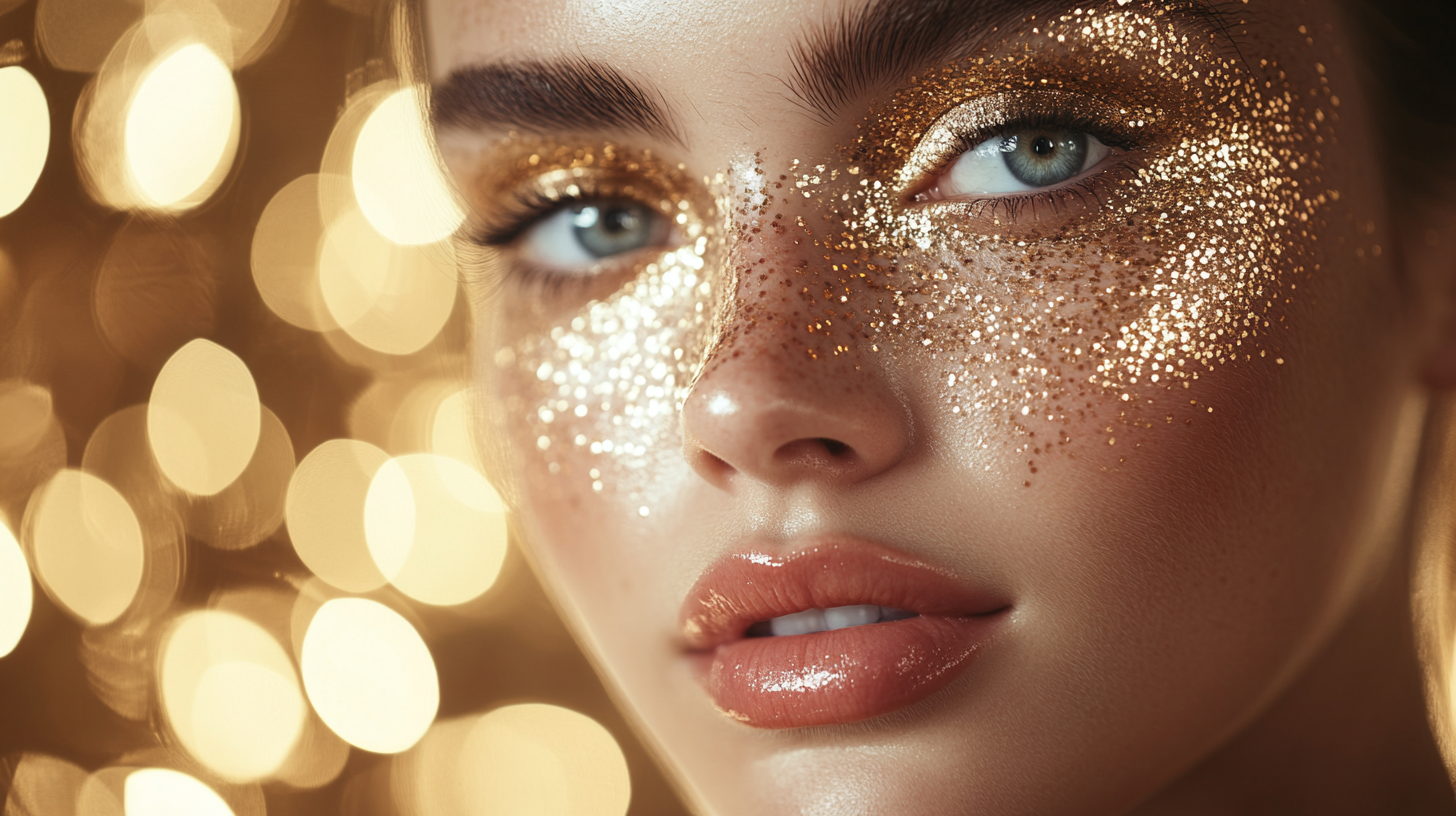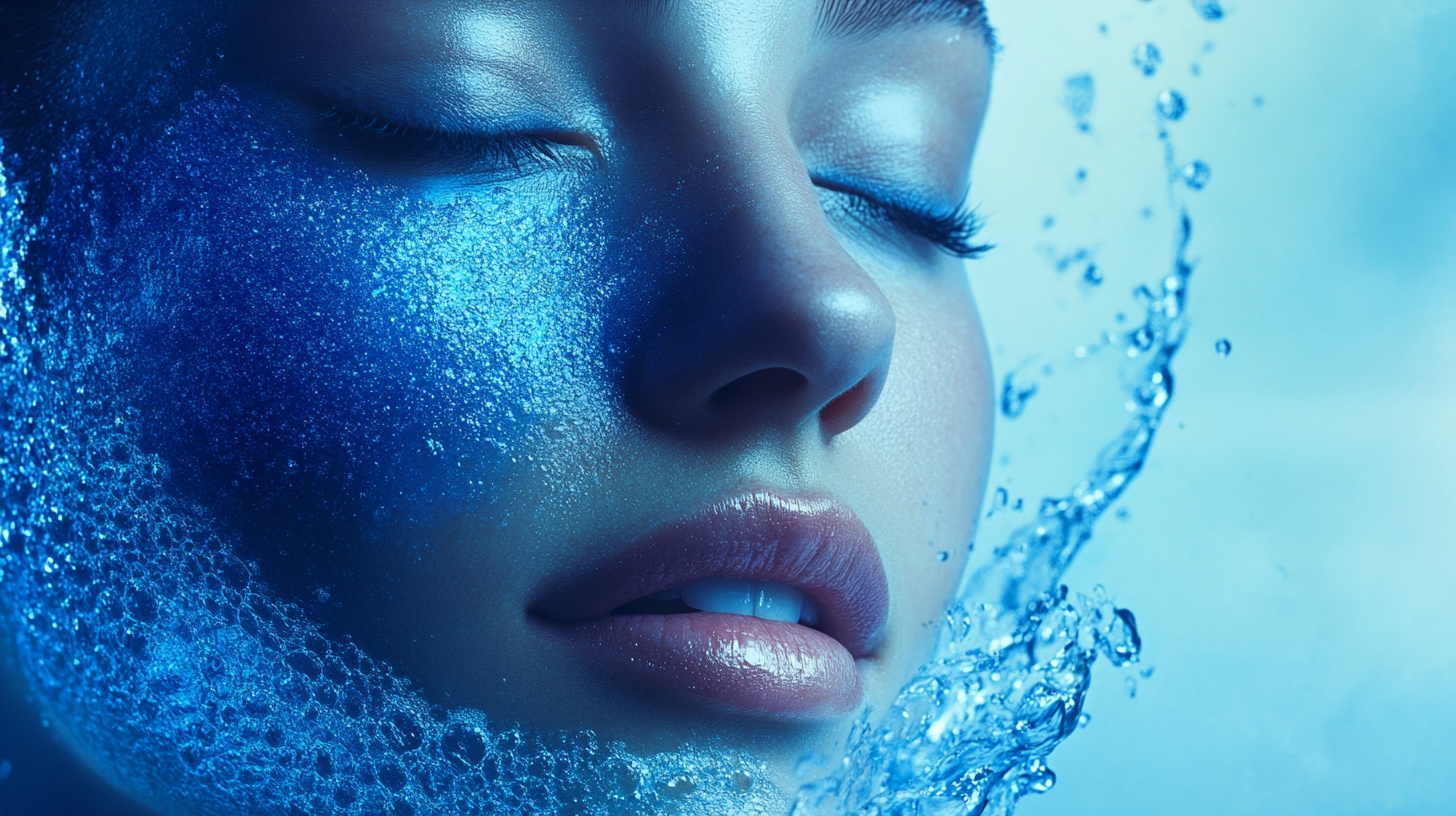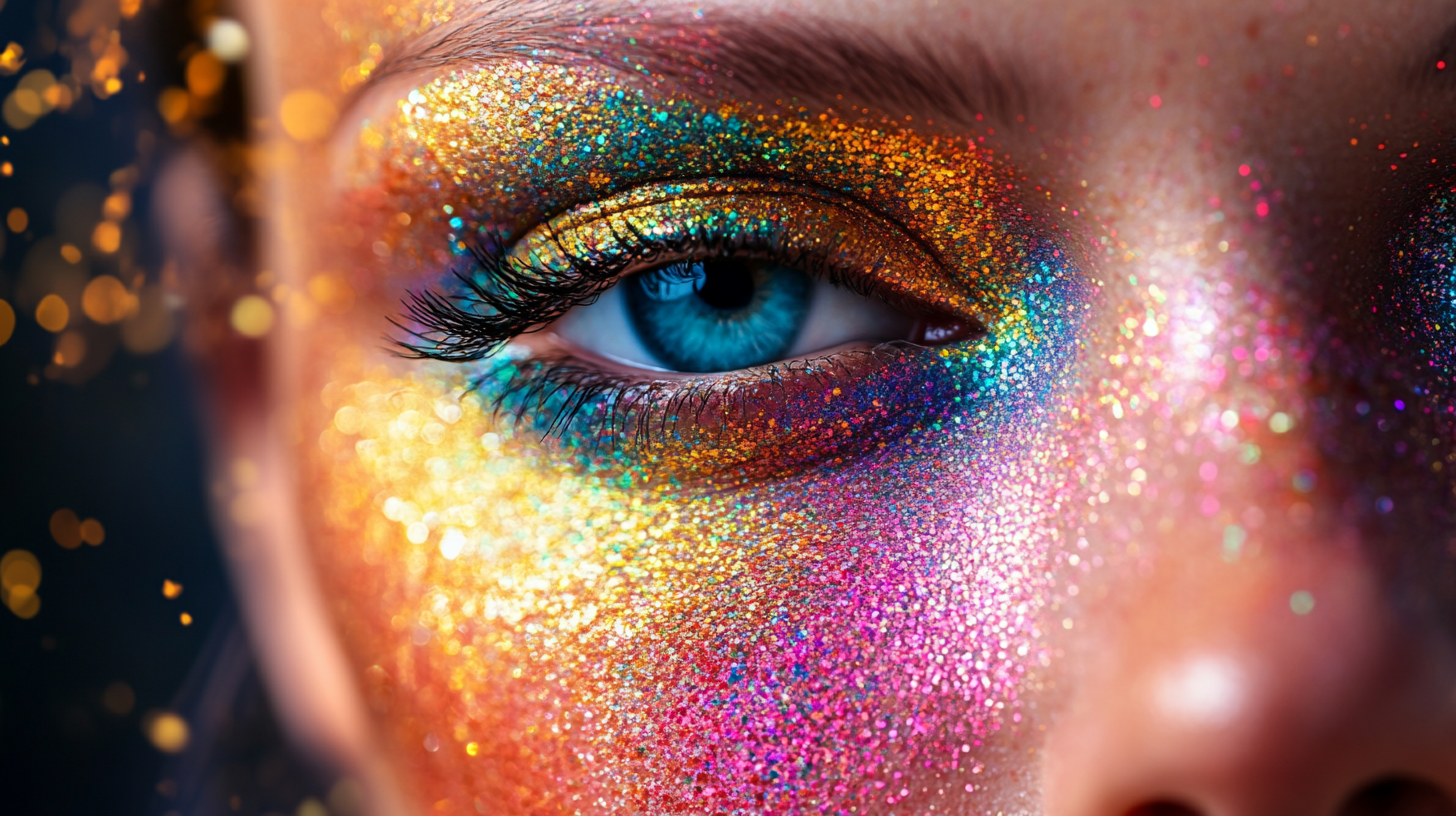Unveiling the Latest Trends in Skin Care Cosmetics for Global Buyers in 2023
In recent years, the beauty industry has witnessed a remarkable surge in the demand for Skin Care Cosmetics, with global sales projected to reach an unprecedented $200 billion by 2024, according to a report by Grand View Research. This significant growth is fueled by an increasing consumer focus on skincare routines and the rising popularity of clean and natural ingredients. The pandemic further accelerated this trend, as individuals shifted their priorities towards self-care and wellness, making informed choices about the products they use on their skin. As such, the skincare segment is becoming increasingly competitive, with brands innovating to meet the evolving needs of global buyers.
As we delve into 2023, it is crucial to unveil the latest trends shaping the Skin Care Cosmetics landscape. Research from Statista shows that personalized skincare products and sustainable packaging are emerging as key drivers in purchasing decisions. Consumers are not only looking for effectiveness but also seeking products that align with their values, such as eco-friendliness and cruelty-free formulations. This blog aims to explore these dynamics, highlighting essential trends that will guide global buyers in making informed choices within the ever-growing skin care market.

Emerging Ingredients Driving Skin Care Innovation in 2023
In 2023, the skin care cosmetics industry continues to evolve, with emerging ingredients at the forefront of innovation. This year, consumers are increasingly drawn to formulations that harness the benefits of nature, science, and sustainability. Natural extracts like bakuchiol, a plant-derived alternative to retinol, have gained immense popularity for their skin-renewing properties without the irritation often associated with traditional retinoids. This ingredient not only promotes cell turnover but also enhances skin texture and tone, making it a favorite among those seeking gentle yet effective anti-aging solutions.
Another groundbreaking ingredient making waves in skin care is mushroom extracts, known for their potent antioxidant and anti-inflammatory properties. Ingredients like reishi and snow mushroom are being incorporated into serums and moisturizers, offering hydration and support for the skin barrier. These mushrooms are celebrated for their ability to soothe and calm irritated skin, making them ideal for sensitive skin types. As consumers turn towards holistic approaches in their beauty routines, these natural ingredients are becoming staples in the skin care arsenals of global buyers.
Furthermore, advancements in biotechnology have paved the way for innovative skin care products featuring lab-engineered ingredients like epidermal growth factors (EGFs). These molecules stimulate cell growth and repair, promising to rejuvenate the skin at a cellular level. By promoting collagen production, such ingredients help to diminish the visibility of fine lines and improve overall skin elasticity. As awareness of the benefits of such scientifically backed ingredients grows, they are quickly becoming the must-have components in cutting-edge skin care products for 2023.
Emerging Ingredients Driving Skin Care Innovation in 2023
The chart below illustrates the popularity of various emerging ingredients in skin care cosmetics among global buyers in 2023. These trends reflect consumer preferences and advancements in cosmetic formulations.
Sustainable Packaging Trends Shaping the Cosmetics Industry
The cosmetics industry is undergoing a significant transformation, particularly in response to the growing demand for sustainable packaging solutions. According to a report by Grand View Research, the global sustainable packaging market is expected to reach $1 trillion by 2027, reflecting an increasing consumer preference for environmentally-friendly products. This shift is being driven not just by eco-conscious consumers, but also by stringent regulations and corporate sustainability goals that many brands are adopting.
In 2023, more cosmetic companies are embracing innovative materials and designs that reduce environmental impact while meeting aesthetic and functional demands. For instance, biodegradable and compostable packaging options are gaining traction, with companies such as L’Oréal pledging to use 100% recyclable, refillable, or compostable packaging by 2025. A recent survey highlighted that 60% of consumers are more likely to purchase a product if it comes in sustainable packaging, indicating a clear market incentive for brands to pivot towards greener solutions.
Moreover, the trend of minimalistic packaging, which emphasizes simplicity and reduces unnecessary materials, is also on the rise. This not only appeals to eco-conscious consumers but also aligns with the trend of decluttering and simplicity in lifestyle choices. The cosmetics industry must navigate these trends carefully; as per a study published by the Cosmetic Industry Association, brands that fail to adapt to sustainable packaging strategies may risk losing up to 40% of their consumer base by 2024.
Unveiling the Latest Trends in Skin Care Cosmetics for Global Buyers in 2023
This chart illustrates the distribution of sustainable packaging preferences among cosmetics buyers in 2023. As sustainability continues to shape consumer choices, understanding these trends is crucial for industry stakeholders.
The Rise of Personalization in Skin Care Products
In 2023, the landscape of skin care cosmetics is evolving rapidly, driven significantly by the trend of personalization. As consumers seek products that cater to their unique skin types and individual needs, brands are responding by harnessing technology to deliver tailored solutions. The integration of AI and data analytics is reshaping the personalized beauty experience, allowing for a deeper understanding of customer preferences and behaviors. This shift is not just a fleeting trend but a fundamental change in how beauty brands interact with their consumers.
The rise of men's grooming products further emphasizes this movement toward personalization. The global men's skincare market is experiencing a notable boom, with innovative brands emerging that focus on customized offerings. This growing demand for tailored products signifies a market shift where male consumers are increasingly prioritizing self-care. Subscription boxes tailored to men's grooming needs are also becoming popular, providing convenience and bespoke solutions that cater to individual preferences.
Moreover, hyper-personalization is taking center stage, particularly within niche markets like hair care, where brands like Prose are leading the charge. With a projected market value reaching $10.4 billion by 2034, the concept of creating customized formulas not only enhances the consumer experience but also positions brands as integral players in the quest for personalized beauty. The future of skin care cosmetics lies in the ability to offer solutions that resonate with the lifestyle and preferences of each buyer, making personalization an imperative strategy for brands aiming to thrive in this competitive landscape.

Influencer Collaborations: A New Marketing Strategy for Brands
In 2023, the skincare cosmetics industry is witnessing a paradigm shift, primarily driven by influencer collaborations that redefine traditional marketing strategies. Brands are increasingly leveraging the massive reach and engagement power of social media influencers to connect with their target audiences in more authentic ways. Unlike conventional advertising, which often feels impersonal, influencer partnerships create a sense of trust and relatability, allowing brands to showcase their products in real-life scenarios.
These collaborations often extend beyond mere product endorsements. Influencers are becoming integral to the product development process, providing valuable feedback that helps brands refine their offerings. This two-way relationship not only fosters creativity but also ensures that new products resonate with consumers' preferences and needs. Social media platforms are bustling with genuine testimonials and behind-the-scenes content, enhancing consumer interest and driving sales.
Additionally, influencers are diversifying their roles through interactive campaigns, such as live tutorials and Q&A sessions, which elevate consumer engagement levels. Brands that invest in these dynamic partnerships are seeing not only a boost in their visibility but also a significant increase in community building around their products. As the market continues to evolve, it’s evident that influencer collaborations will remain a crucial strategy for skincare brands aiming to stand out in a crowded marketplace.
Unveiling the Latest Trends in Skin Care Cosmetics for Global Buyers in 2023
| Trend | Description | Influencer Collaboration Type | Brand Examples | Projected Impact |
|---|---|---|---|---|
| Clean Beauty | Focus on non-toxic, environmentally friendly products. | Sustainable Influencers | Tatcha, Biossance | High engagement and brand loyalty. |
| Personalization | Customized skincare based on individual needs. | Micro-Influencers | Curology, Function of Beauty | Increased customer satisfaction. |
| Tech-Driven Solutions | Use of AI and apps to assess skin conditions. | Tech Influencers | Skinsei, L'Oréal's SkinConsult AI | Broader market reach through technology. |
| Diversity and Inclusivity | Products catering to all skin types and tones. | Diverse Influencers | Fenty Beauty, Beauty Bakerie | Enhanced brand reputation and outreach. |
| Minimalist Skincare | Fewer products with multi-functional benefits. | Lifestyle Influencers | The Ordinary, Glossier | Cost-effective and time-saving. |
Holistic Approaches to Skin Care: Wellness and Beauty Integration
In 2023, the skincare industry is experiencing a transformative shift towards holistic approaches that blend wellness with beauty. This trend, often referred to as the "wellness-ification" of skincare, emphasizes the importance of nurturing both the body and mind to achieve radiant skin. Consumers are increasingly looking for products that align with their lifestyles, focusing on intuitive skincare that syncs with their individual health cycles and life stages. This represents a significant change from traditional skincare regimens, which often relied on reactive solutions.
The rise of personalized health is redefining the way consumers approach their beauty routines. In a world where 80% of adults now prefer preventative care over reactive measures, long-term strategies are becoming paramount. This shift is evident in the growing demand for nutricosmetics, which combine nutritional benefits with cosmetic effects, offering a holistic approach to beauty. Brands are responding by creating innovative products that serve not only to enhance appearance but also to promote overall wellness.
As we look ahead, the integration of beauty and wellness is set to drive significant trends in the market. From beauty beverages that nourish the skin from within to neurocosmetics that address mental well-being, the future of skincare is increasingly focused on holistic solutions. This evolving landscape promises a more inclusive and personalized beauty experience, catering to the diverse needs of consumers globally. The alignment of skincare with wellness trends reflects a profound understanding of the interconnectedness of beauty and health, paving the way for transformative growth in the industry.

